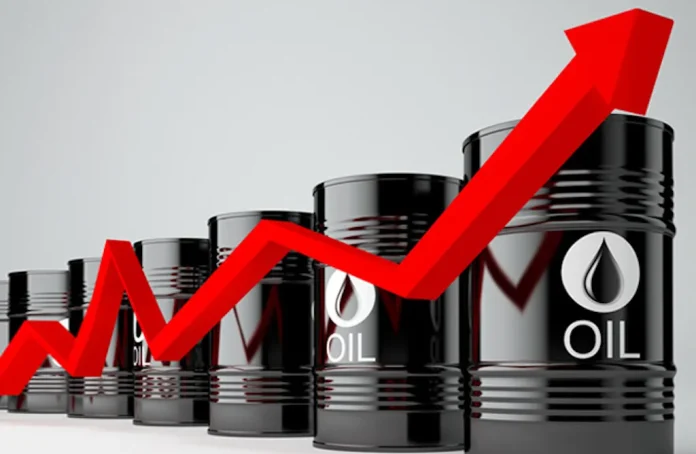Crude oil prices soared to their highest levels in four months following the United States’ imposition of stringent sanctions targeting Russia’s oil sector. The sanctions, introduced by the Biden administration, aim to curtail Moscow’s ability to generate revenue from oil exports, escalating concerns over global oil supply.
As of Monday, Brent crude was trading at $81.11 per barrel, while West Texas Intermediate (WTI) stood at $78.08 per barrel, both posting gains of over 1% since markets opened.
The U.S. Treasury’s latest measures include sanctions on key Russian oil companies Gazprom Neft and Surgutneftegaz, along with restrictions on 183 tankers, many of which belong to the so-called “shadow fleet” used by Russia to bypass Western shipping and insurance services.
RBC Capital Markets described the sanctions as a significant risk to global oil supply, adding uncertainty to the outlook for the first quarter of 2025. “The new Russian sanctions from the outgoing administration are a net addition to at-risk supply, adding more uncertainty,” the firm said in a note quoted by Reuters.
China and India, the largest buyers of Russian crude since the Ukraine war began, are reportedly scrambling to mitigate the impact of these sanctions. Analysts warn that the move will push Asian buyers to seek alternatives in the Middle East, Africa, and the Americas, likely driving up shipping costs and creating logistical hurdles.
“Overall, the doubling of tankers sanctioned for moving Russian barrels could serve as a major logistical headwind to post-invasion crude flows,” analysts at RBC Capital Markets noted. The sanctions are expected to affect vessels carrying an estimated 1.5 million barrels of Russian crude daily.
The latest measures are widely regarded as the toughest sanctions on Russian energy to date, targeting every stage of the production and distribution process. A U.S. official, speaking to Reuters, expressed confidence that the sanctions would significantly increase the cost and difficulty of circumventing restrictions.
Oil markets have reacted sharply, with experts predicting further price increases as the sanctions disrupt global supply chains. Asian oil importers, in particular, are expected to bear the brunt of the higher costs as they shift reliance to other suppliers.
With this decisive move, the Biden administration has underscored its commitment to tightening pressure on Russia, leaving energy markets to grapple with heightened volatility and uncertainty in the months ahead.













